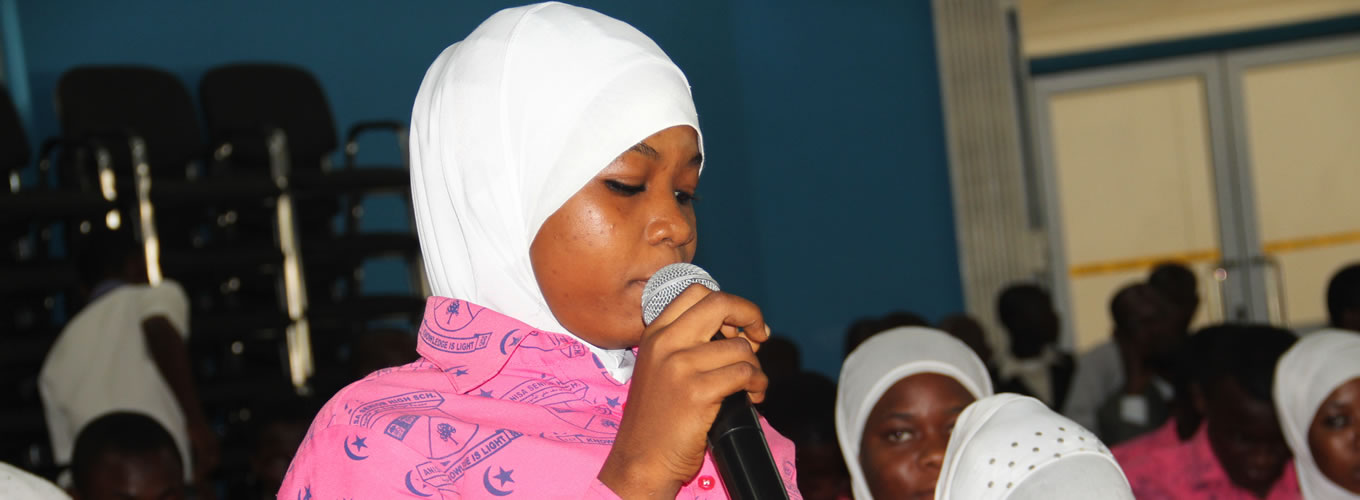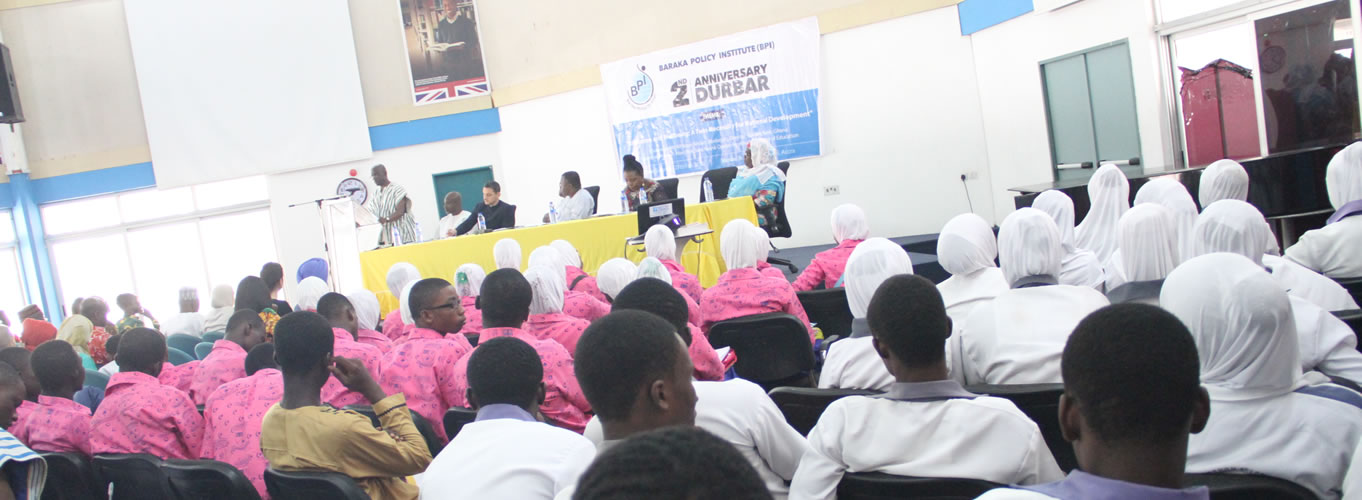BARAKA
POLICY INSTITUTE
Social Justice, Equity & Progress
Collaboration with Government to Make Arabic Examinable
The Baraka Policy Institute (BPI) played the most essential role in the efforts that ensured that Ghana introduced Arabic at the West Africa Senior School Certificate Examination (WASSCE) in 2016. BPI undertook three key activities to garner government support and approval for introduction of the subject at Senior High Schools in Ghana. Firstly, BPI conducted study on the readiness of Islamic senior high schools in Ghana who offer Arabic as an elective subject. The findings of the research suggested that the schools already taught Arabic as non-examinable subject using the West African Examination Council (WAEC) examination syllables. Also, most of the schools had qualified teachers for the subject already. Additionally, there were students who were having interest in the subject and wishing to pursue it at the university.
Secondly, BPI presented the findings of that report to the then Director-General of the Ghana Education Service (GES) Mr. Jocob Kor and defended the position that Islamic Schools in Ghana were ready to offer Arabic at WASSCE. The research served as evidence of readiness for consideration by government.
Thirdly, BPI galvanized all Islamic Senior High Schools in Ghana and offered them intellectual direction and guidance that resulted in the formation of the Federation Of Islamic Senior High Schools in Ghana (FISHSIG). And through the instrumentality of BPI, and close collaboration with FISHSIG and the Durra Institute for Arabic Language, Islamic senior high schools in Ghana were given orientations to prepare for May/June Arabic WASSCE 2016. This was Ghana’s first ever participation in examinable Arabic by the West African Examination Council (WAEC) since the inception of Ghana’s new educational reforms in 1990.
Arabic is an economic language that can be leveraged upon to promote productive economic relations between Ghana and the Arab world. The language can help Ghanaians to effectively engage in profitable business with their Arab counterparts. BPI therefore associates a relationship between Arabic as an economic language and Foreign Direct Investments (FDI). This is because over half of the world’s wealth is arguably located in the Arab Gulf. For BPI, Ghana stands a chance of benefitting from increased Foreign Direct Investments (FDI) from the Arab World which can boost the economy and accelerate our economic development efforts. In view of the above, the promotion of teaching and learning of the Arabic Language in Ghana has become a necessary in our contemporary times.
Get in touch
P. O. BOX LG 1267,
Legon, Accra
+233-(0)30 393 4431
+233-(0)30 255 5479
info@barakapolicy.org
Navigate
© 2020 Baraka Policy Institute. All Rights Reserved. | Powered By: Gesatech Solutions - Your Trusted It Partner
Get in touch
P. O. BOX LG 1267,
Legon, Accra
+233-(0)30 393 4431
info@barakapolicy.org
Navigate
© 2020 Baraka Policy Institute. All Rights Reserved. | Powered By: Gesatech Solutions - Your Trusted It Partner




